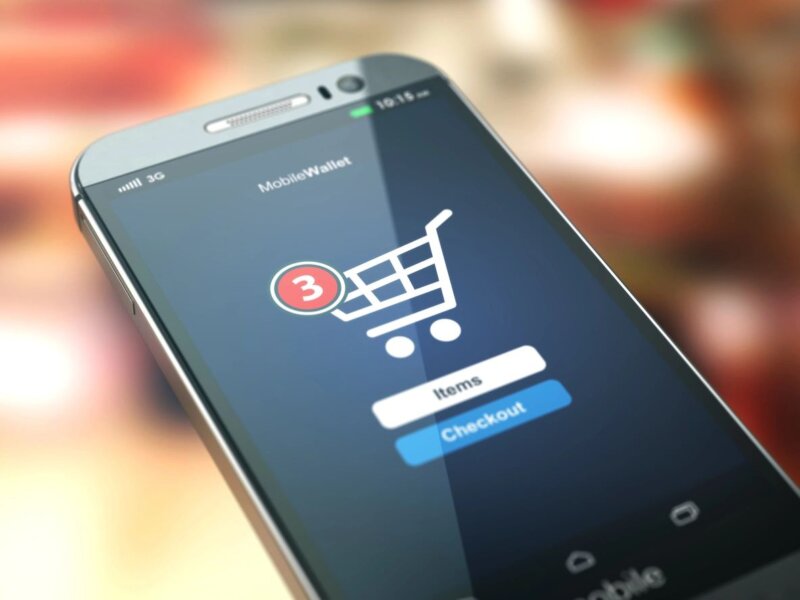Money, dedication, sleepless nights – maybe even some failure along the way. Starting an ecommerce store can be a daunting task, but nothing matches the feeling once you start to reap the rewards of all that hard work.
But in a world with everything at our fingertips, startups are limiting themselves from the outset if they’re only thinking about their local market.
There’s a huge pool of potential customers in other geographies currently going untapped, with more than half of global consumers said they are ready to buy from the UK.
So why just think local when you can go global?
Grow, grow, grow
It’s only natural to think first about your closest customers first. Some of the most popular businesses started off small, catering to local consumers before becoming the ecommerce giants they are now.
But once the home market starts to become saturated, it’s probably time to start thinking about expanding internationally.
International consumer markets are growing at a rapid pace, with businesses of all sizes and in all locations reaping the rewards of the current ecommerce ‘boom’.
Yet many startups are still being forced to focus on products in their home market with the aim of first gaining momentum to navigate the traditional obstacles of early-stage businesses.
The problem is, if a business focuses too much on just the local market without keeping one eye outside of the country, it likely won’t be able to support itself in the long-term.
After all, there are over 7.6 billion people in the world, and only 66 million in the UK.
Localisation and globalisation are closely linked
In an era of globalisation, startups are having to compete with or use the services of the likes of Amazon or eBay.
But offering localised services and products could offer a significant competitive differentiator.
Businesses that offer localised products are able to utilise and promote deep market knowledge to attract new customers and increase brand awareness and loyalty.
This also rings true in their communication and marketing, as the same taglines and headlines that proved popular within one market could be completely lost on another.
As a startup looking to scale internationally, you can’t afford for messages to get lost in translation.
But it’s not just a matter of swapping languages. Scaling globally takes an understanding of other cultures and new audiences – and ultimately how to cater to their needs.
When entering new markets, think about the language, design and cultural elements of the website to provide a relevant experience for your new customers.
Consumers need a personal touch
Just 14% of UK businesses currently sell internationally. So, if you’re one of the 86% of businesses that aren’t selling internationally yet, it’s time to start thinking about it as there’s a lot of opportunity to be had.
Because, there are still a lot of barriers for growing internationally, the typical ones of cost, delivery times and language barriers are being removed, allowing online businesses to thrive across borders.
Language is an important barrier, and probably the most obvious place to start for businesses entering new geographies.
According to a survey commissioned by Weglot, 61% of UK consumers said shopping on a foreign language website was a significant put-off, while 49% said they wouldn’t buy a product online if the website wasn’t in English.
The key to expanding is producing a business which is able to personalise and localise their products to cater to specific geographies, but there are certain aspects to think about first in order to boost success.
Firstly, it’s important to take it step by step. Rushing into opening several stores across the world takes time, resources and manpower, so you’ve got to be confident that you have these first if you’re to meet consumer expectations.
Start small by translating your store into one language first, as it’s better to build up a solid base as you go along rather than trying to expand everywhere and anywhere at the same time.
This actually leads me onto the next tip, because the first one would typically be the most popular language based on where your current web visitors are coming from, as it’s clear there’s a demand for your products.
When selecting which new territory to open up in, make sure you check the location and amount of current website visitors. This will tell you where you already have a base of budding customers and give you a good platform to build further success.
Last, but by no means least, ensure you are constantly monitoring web traffic to check on performance, sales and what can be improved. Your website is your best sales tool, so make sure it’s optimised, user friendly and a good representation of the brand.
And be patient. Building success in brand new areas can take time, but if you utilise the right tools and put the customer first, you’ll put yourself in the best possible place.
Unimaginable growth
Scaling a startup internationally doesn’t have to be hard work.
The difference between failure and success usually comes down to diligent planning, a global frame of mind and keeping everything customer-centric.
This doesn’t mean launching a business in multiple countries at once, but rather a focus on identifying what it is about the business that appeals to global audiences first and building on success one step at a time.
International expansion takes a lot of patience, but with the right plan and strategy behind you, each and every new market can make your business a global success.
Author
Augustin Prot, CEO and co-founder of Weglot






